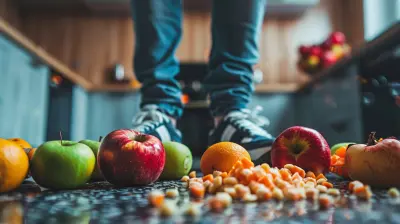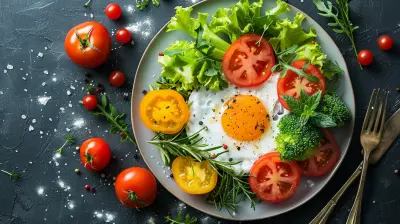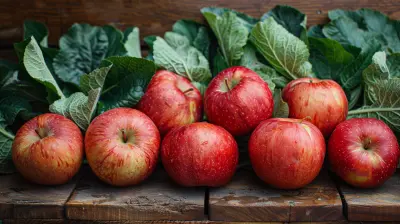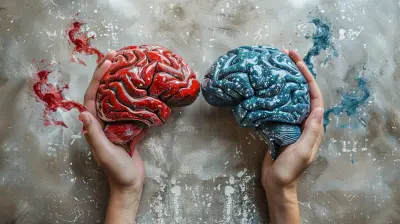Building a Balanced Diet for Lasting Weight Loss
5 June 2025
Losing weight isn’t just about cutting calories or following the latest diet trend. It’s about creating a balanced approach to eating that fuels your body, satisfies your cravings, and sustains you over the long haul. No crash diets, no extreme restrictions—just real food, real habits, and real results.
If you’re tired of yo-yo dieting and want a sustainable way to shed pounds and keep them off, you're in the right place. Let’s break it down into simple, actionable steps that make healthy eating feel natural, not like a punishment.
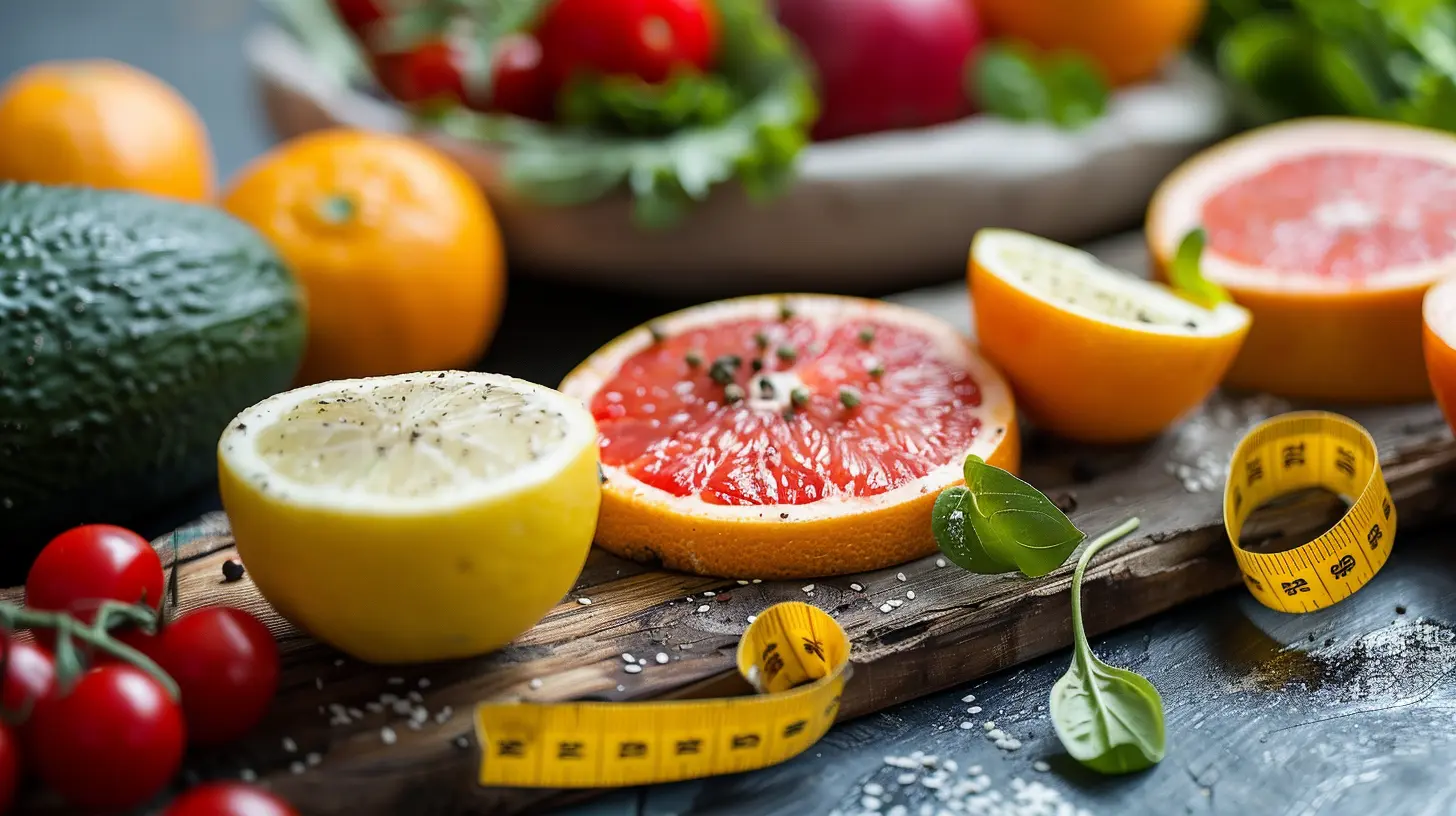
Why Fad Diets Fail and Balance Wins
Ever tried a diet that promised quick results, only to find yourself miserable, hungry, and back to square one within a few months? You’re not alone. Fad diets often restrict entire food groups, making them hard to maintain.The truth is, lasting weight loss isn’t about deprivation—it’s about balance. A well-rounded diet ensures your body gets essential nutrients, keeps your metabolism functioning properly, and prevents cravings that lead to binge eating. So instead of cutting carbs completely or drinking only green juice for a week, focus on making smarter choices that you can stick with long-term.
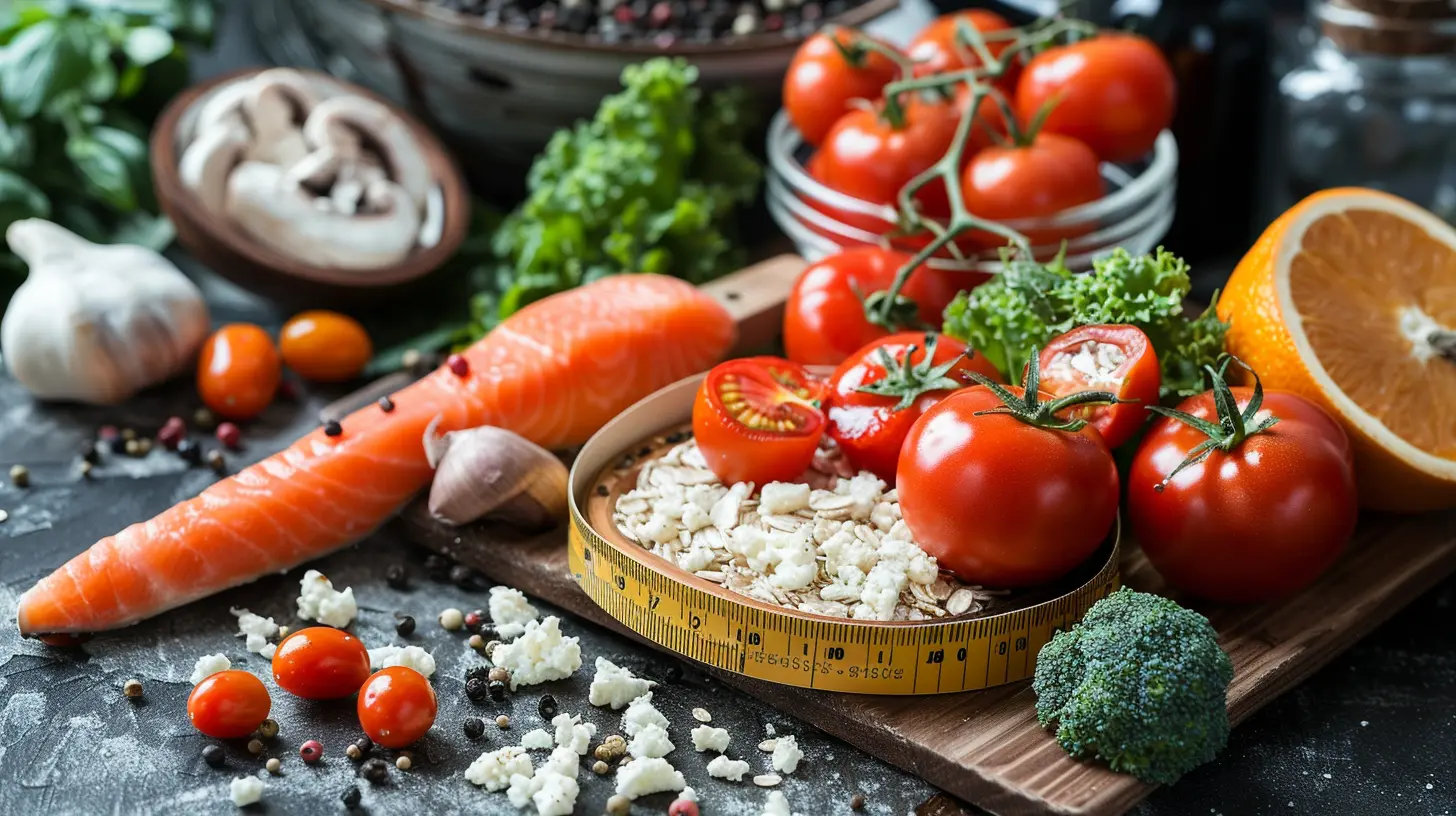
The Building Blocks of a Balanced Diet
A balanced diet for weight loss includes all the essential nutrients your body needs. Here’s what to focus on:1. Protein: The Satiety Superstar
Protein is your best friend when it comes to weight loss. It keeps you full, stabilizes blood sugar, and supports muscle maintenance, which is crucial for burning calories efficiently.What to eat:
- Lean meats (chicken, turkey, fish)
- Eggs
- Tofu and tempeh
- Greek yogurt
- Lentils and beans
- Nuts and seeds
Pro tip: Start your day with a protein-packed breakfast to curb cravings later on. Scrambled eggs with veggies or a smoothie with protein powder can do wonders!
2. Healthy Fats: The Misunderstood Nutrient
Fat has been demonized for years, but here’s the truth—healthy fats are essential for hormone regulation, brain function, and keeping you full. The key is choosing the right kinds.What to eat:
- Avocados
- Olive oil
- Nuts and seeds
- Fatty fish (salmon, mackerel, sardines)
- Coconut oil (in moderation)
What to avoid: Trans fats found in processed foods like fast food, margarine, and packaged snacks.
3. Complex Carbs: Your Body’s Preferred Fuel
Cutting carbs entirely is unnecessary and unsustainable. Instead, focus on complex carbs that provide fiber, energy, and long-lasting satiety.What to eat:
- Whole grains (quinoa, brown rice, oats)
- Legumes (chickpeas, lentils, black beans)
- Vegetables (sweet potatoes, leafy greens, bell peppers)
- Fruits (apples, berries, bananas)
What to avoid: Refined carbs like white bread, pastries, and sugary cereals. These spike your blood sugar and leave you feeling sluggish.
4. Fiber: The Secret Weapon for Weight Loss
Fiber is often overlooked, but it’s a game-changer for digestion and keeping hunger at bay. It slows down digestion, stabilizes blood sugar, and prevents overeating.What to eat:
- Vegetables (broccoli, Brussels sprouts, carrots)
- Fruits (pears, oranges, berries)
- Whole grains (brown rice, oats, buckwheat)
- Legumes (black beans, lentils, chickpeas)
Pro tip: Load up on fiber-rich foods at every meal to keep cravings in check!
5. Hydration: The Forgotten Factor
Sometimes, what we think is hunger is actually dehydration. Staying hydrated supports digestion, metabolism, and overall well-being.What to drink:
- Water (at least 8 glasses a day)
- Herbal teas
- Coconut water
- Infused water with lemon or cucumber for flavor
What to avoid: Sugary drinks like soda, artificial fruit juices, and energy drinks that add unnecessary calories.
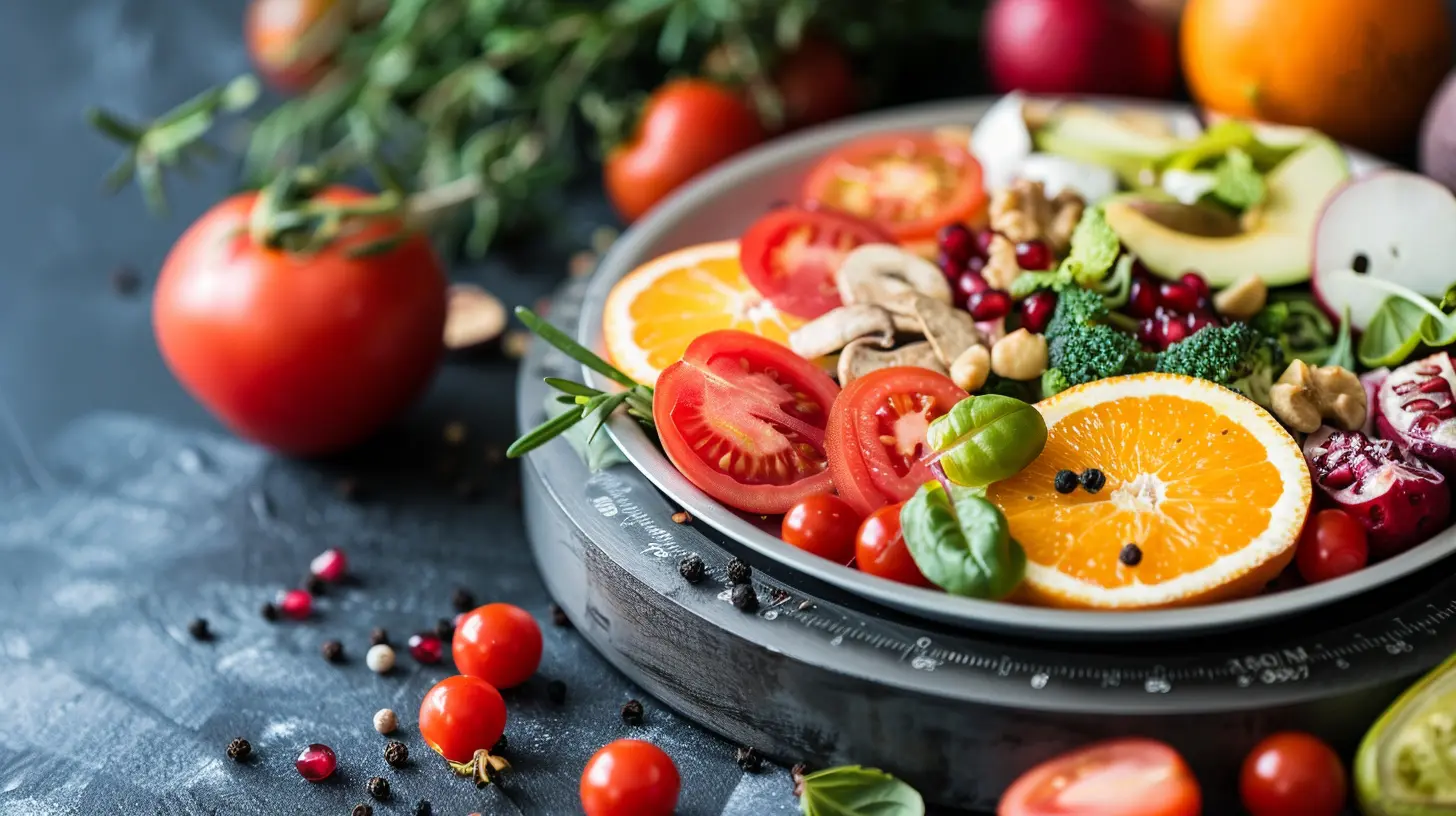
Smart Eating Habits for Sustainable Weight Loss
Beyond what you eat, how you eat plays a huge role in long-term success.1. Eat Mindfully
Slow down and pay attention to your food. Enjoy each bite, listen to your body's hunger cues, and stop eating when you're satisfied—not stuffed.2. Portion Control Matters
Even healthy foods can lead to weight gain if eaten in excess. Use smaller plates, measure portions when needed, and be mindful of serving sizes.3. Plan Your Meals
Meal prep isn't just for fitness influencers—it’s a lifesaver. Having healthy meals and snacks ready prevents impulsive, unhealthy choices.4. Don’t Skip Meals
Skipping meals leads to overeating later. Aim for balanced meals throughout the day to keep energy levels stable and cravings in check.5. Snack Smart
Snacking isn’t bad—it just depends on what you choose. Instead of chips and candy, go for nuts, yogurt, hummus with veggies, or fruit with nut butter.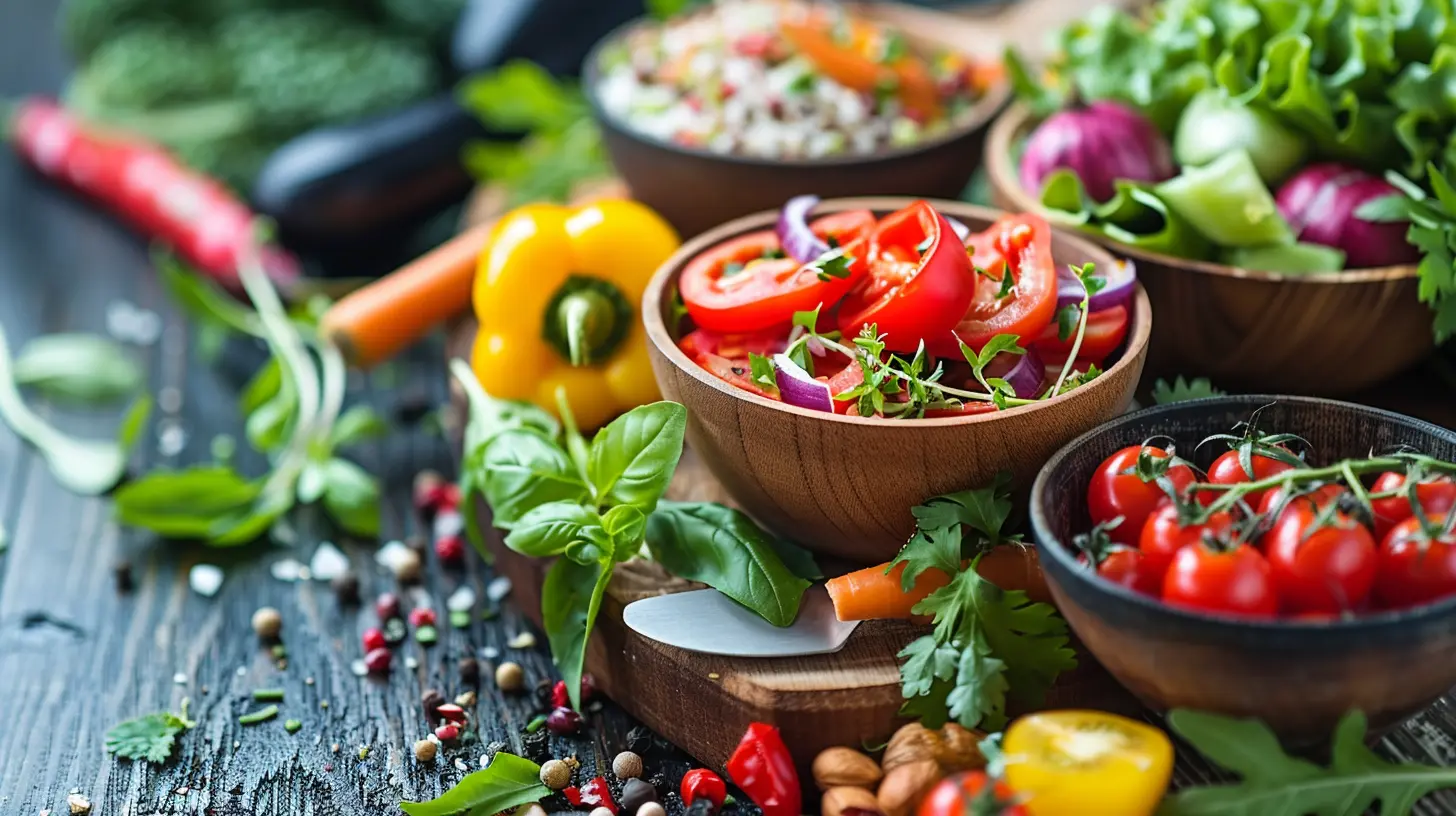
Crushing Common Weight Loss Myths
There's so much misinformation out there when it comes to weight loss. Let's clear up some of the most common myths:Myth #1: Carbs Make You Fat
Nope! Carbs alone aren’t the issue—overeating processed, refined carbs is. Stick to whole, fiber-rich carbs, and you’ll be just fine.Myth #2: Skipping Meals Helps You Lose Weight Faster
Actually, skipping meals can slow metabolism and lead to binge eating later. Consistently balanced meals are the way to go.Myth #3: Fats Should Be Avoided
Healthy fats are essential for weight loss. They help keep you full and support bodily functions. The key is quality, not quantity.Myth #4: You Have to Cut Out Your Favorite Foods
A sustainable diet allows for balance. If you love pizza or chocolate, enjoy it in moderation. It’s about consistency, not perfection.The Bottom Line
Lasting weight loss isn’t about suffering through another restrictive diet—it’s about building a balanced lifestyle that works for you. By focusing on real, nourishing foods, staying mindful of portions, and making small, sustainable changes, you can achieve your goals without feeling deprived.Remember, it’s not about eating perfectly—it’s about progress. Small, consistent habits add up over time. So take it one meal at a time, listen to your body, and enjoy the journey!
all images in this post were generated using AI tools
Category:
Weight LossAuthor:

Laurie Barlow
Discussion
rate this article
3 comments
Isadora McDonough
Thank you for this insightful article on building a balanced diet for lasting weight loss. I appreciate the practical tips and evidence-based approach you provide. It's a great reminder that sustainable change comes from mindful eating and making informed choices. Looking forward to trying these suggestions!
June 20, 2025 at 3:10 AM

Laurie Barlow
Thank you for your kind words! I'm glad you found the article helpful and hope the tips support your weight loss journey. Happy eating!
Alyssa Wilkins
A balanced diet is crucial for sustainable weight loss. Focus on whole foods, proper portion sizes, and a variety of nutrients to support overall health and weight management.
June 10, 2025 at 4:41 PM

Laurie Barlow
Thank you for your insightful comment! A balanced diet indeed plays a vital role in achieving sustainable weight loss and overall health.
Zethryn McGuffin
Focusing on whole foods and moderation fosters sustainable weight loss and health.
June 9, 2025 at 2:49 AM

Laurie Barlow
Thank you for your insightful comment! Whole foods and moderation truly are key components for achieving and maintaining a healthy weight.
